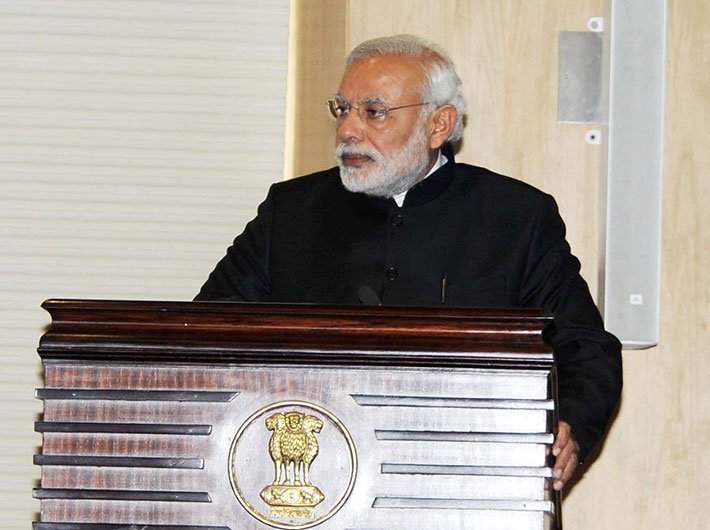All those who got a kick by defeating the system have been given a taste of their own medicine
I was glued to the television screen, following the US presidential election coverage. In the midst of an extremely intense television debate, where each participant was grappling for airtime, the news anchor announced that prime minister Narendra Modi will be addressing the nation at 8 pm. My social media timeline was inundated with speculators guessing what the PM had to say and how he was stealing the show from the Hillary-Trump pageant. PM Modi stumped every citizen by announcing demonetisation of Rs 500 and Rs 1,000 notes.
Fast forward to the present and the entire nation has an opinion on the measure. While the economic, political, legal and technology dimensions have been discussed, dissected, debated and dismissed, the impact of demonetisation on the socio-culture dynamics of India has hardly received any attention. We as a nation have accepted the ‘chalta hai’ attitude as a part of our life. The tentacles of bribery, corruption, circumventing regulations have been stinging the system, and encroaching all aspects of life. All those who got a kick by defeating the system have been given a taste of their own medicine. The system just hacked your vault.
As humans, there is a certain thrill we experience in breaking rules or hacking the system. Ask a young student if he has ever bunked school. His face lights up as he narrates his success story. Entering your home through the kitchen window post curfew time, masquerading as an adult for an ‘A’ rated movie, driving your dad’s car without licence. The examples are plenty, of times when we have broken rules and got off scot-free. For a nation where 20 percent of the population is in the impressionable age group of 5-14 years, demonetisation would hopefully serve as a glaring example of how one cannot always get away by breaking rules. System has the power to change rules, and pull up the miscreants as and when required. The system is equipped with tools to dismiss the wrongdoer. Imagine the plight of irregular students if minimum attendance requirement is increased from 35 percent to 50 percent a week before examinations. If we were to introduce monetary incentives to crack down on illegal activities such as sale of weed, human trafficking; the malefactors will have no burrows to hide.
We need to build a society that is unforgiving to corruption. We can no longer afford to laud the wrongdoer. We have always advocated ‘praise in public, punish in private’. Unfortunately, that does not instil the much need fear in the minds of citizens, of the plausible consequences their actions may have, on their public image. Everyone wishes to have a clean image, and we as a race have always been conscious of how others perceive us. Publicly ridiculing the offender goes a long way in preventing him from becoming a compulsive offender. Opportunely, demonetisation does exactly that. It has publicly stripped the hoarders of black cash, leaving them with no easy route to escape. Some of those, who owned warehouses of illegal cash, are not only suffering monetary loss but also a degree of shame as they hold dinner-table discussions with their family on ways to dispense cash. A dishonest man is no longer an honest father.
Never has any institution conducted a showdown of this scale and size. It has touched every Indian citizen, in more ways than one, unlike other measures such as regional ban on alcohol, which stirs only a certain section of people. The showdown on black cash comes with a strong social message embedded within it. The system has all the power to remove status quo, burn its own books and write new rules. Every social norm or institutional rule has a lifetime. There are no laurels for holding back rules that have, over a period of time, acquired inherent capabilities to belie growth.
Changing institutional schematics should not be precluded, because as the adage goes, “there is always a way out”. Any change invites resistance, and a leader should not be deterred by resistance if he is convinced that the existing rule book has expired. Last few days have served as a reminder to all reckless mongers, that the power of the sovereign is extant, non-negotiable and cannot be gainsaid. The exogenous shock, when studied dispassionately, is a case study to reckon with. Its potential to influence behaviour of ordinary Indians in a more positive direction and turn it away from illegality and criminality is enormous. Channelising this disruption towards character building of younger citizens and reinstating a modicum of discipline will make the effort worth every queue.
(Kapoor is an associate fellow at Pahle India Foundation)
